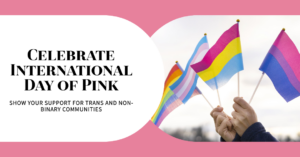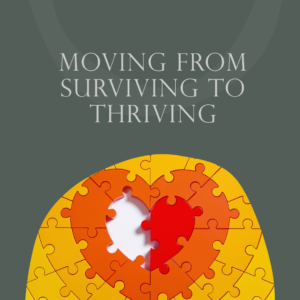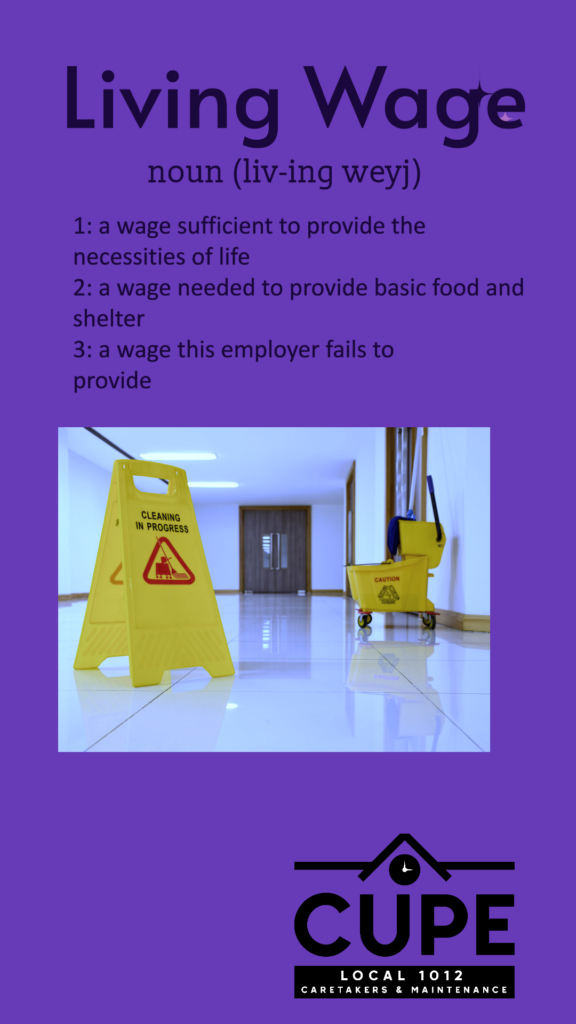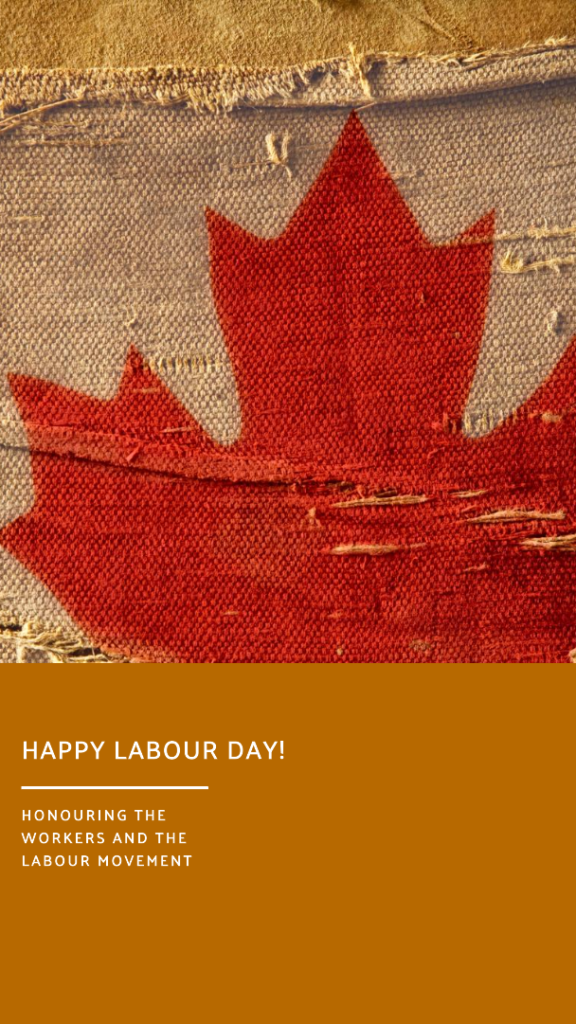Wear Purple on Wednesdays in support of all education locals bargaining for fair wages and improved working conditions
International Day of Pink

On the International Day of Pink, CUPE encourages all members to wear pink to challenge homophobia and transphobia in all its forms.
The International Day of Pink started in 2007 when a teenager faced homophobic bullying at a Nova Scotia high school for wearing a pink t-shirt. Students organized to wear pink as an act of solidarity. It is now a day of action on the second Wednesday in April every year.
Too many 2SLGBTQI+ workers continue to face exclusion and violence in their jobs. Trans and non-binary people face added barriers to decent work, health care and housing. 2SLGBTQI+ people who also experience racism, ableism and other forms of oppression are even more likely to have low incomes and insecure housing. At the same time, they are also more likely to face violence, harassment and police brutality – especially if they are Black, racialized and/or Indigenous.
Despite these challenges, 2SLGBTQI+ workers and their allies continue to organize. We wear pink to resist homophobic and transphobic harassment, while fighting every day to protect public services that 2SLGBTQI+ people work in and rely on. CUPE will never stop working to improve the lives of Two-Spirit, lesbian, gay, bisexual, trans, queer, and intersex workers.
On International Day of Pink, take a stand against bullying and harassment. Wear pink and post a photo on social media with the #DayOfPink hashtag.
Learn more and take action with these CUPE resources:
- Resist attacks that divide us: CUPE stands with trans people
- Bargaining beyond the binary: A negotiating guide for trans inclusion and gender diversity
- Fact sheets on Pronouns and Allies on Gender Diversity
- Guide and pamphlet on workplace harassment.
- Checklist for bargaining 2SLGBTQI+ rights.
- Report on safer public services for 2SLGBTQI+ workers and older adults
Let’s work together to stop bullying and harassment. Visit our 2SLGBTQI+ page for more information.
World Autism Awareness Day 2024
Pursuing a rights-based future for all Autistic people 
While many positive steps have been taken in the last year, such as the release of the Joint Committee on Autism’s final report and the draft Autism Innovation Strategy, a robust legal framework to protect the rights of Autistic people is still not in place in Ireland.
The European Charter of Rights for Person’s with Autism, which was signed and passed by the European Parliament in 1996, noted that “people with Autism should share the same rights and privileges enjoyed by all of the European population where such are appropriate and in the best interests of the person with Autism. These rights should be enhanced, protected and enforced by appropriate legislation in each State”. The Autism Bill 2017 would provide appropriate legislation, yet it remains stagnant in its 2nd stage of the Dáil, having passed all 5 stages in the Seanad.
Similarly, although the United Nations Convention of the Rights of Persons with Disabilities (UNCRPD) was ratified by our country in 2018, eight years later we have yet to ratify the Optional Protocol. The Optional Protocol would allow for an individual complaints mechanism for the UNCRPD. States who ratify the Optional Protocol agree to recognise the competence of the Committee on the Rights of Persons with Disabilities to consider complaints from individuals or groups who claim their rights under the Convention have been violated. Again, legal recourse and protection has been kept out of reach of Autistic people.
More recently, the Joint Committee on Autism’s final report in 2023 contained 192 recommendations for Government, the first of which is to “Enact legislation which requires the State to publish an autism strategy every three years, establish a committee or monitoring group featuring autistic people to participate in drafting and monitoring the strategy and require the Minister for Disabilities of the day to address both houses of the Oireachtas annually to provide an update regarding its progress”.
This World Autism Awareness Day, we must continue to push ahead in the pursuit of the rights of Autistic people as full citizens of this country.
All Government Departments, State Bodies, and Committees need to come together to encourage the progression of the Autism Bill, to implement the recommendations of the Joint Committee on Autism’s final report, and to ratify the Optional Protocol of the UNCRPD.
Stress Awareness Month

National Stress Awareness month in Canada, a good time to take inventory of our stress management tools and supports to help alleviate some of its negative impacts. Managing stress is an essential component of a healthy lifestyle.







